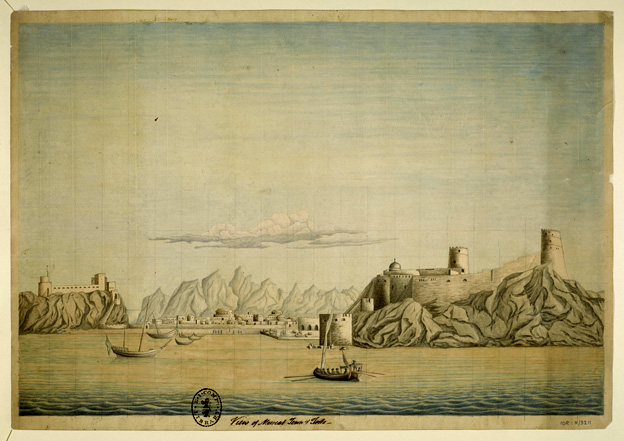BBC News provides some information on a massive project currently underway at the British Museum:
A transgender singer hits stardom in Baghdad. Officials scramble to impose order after a Kuwaiti restaurant is found to be selling cat meat. Gulf royals on an official visit to London are left marooned in a drab south London suburb because of a shortage of hotel rooms in the West End.
These are some of the quirky stories hiding in nine miles of shelving at the British Library (BL) that hold the India Office Records — millions of documents recording Britain’s 350-year presence in the sub-continent.
The India Office did not only administer India, it also exercised colonial rule over an area stretching west as far as Aden. That’s why the files cover Persia and Arabia. And the reason the stories are coming to light is that the Qatar Foundation has paid £8.7m for nearly half a million documents relating to the Gulf to be digitised.
Work started in 2012, and many of those documents have now gone online at the Qatar National Library’s digital library portal.
Never formally part of the British Empire, the Gulf nonetheless came under colonial administration after being targeted for trade in the 17th Century by the East India Company. Two centuries later, the government established direct control through the India Office.
[…]
But principles of free academic inquiry, which guide the BL’s work, contrast with Freedom House’s assessment of Qatar as “not free”. Amnesty International called Qatar’s new cybercrimes law, passed last month, “a major setback for freedom of expression”, and Qatari writer Mohammed Al-Ajami remains in jail, serving a 15-year sentence for a poem deemed insulting to the monarch.
The BL and Qatar National Library (QNL) both hold copies of the digitised archive but Gibby’s expectation is that the portal – currently hosted by Amazon – will eventually be transferred for hosting in Qatar. That could theoretically expose material to manipulation by Qatari censors.
“That was discussed very clearly right from the beginning,” says Gibby. “Both sides made very clear to each other that there is no suggestion this will be censored. To date that has been borne out. We, the British Library, are trusting [the Qatar Foundation] and our faith is in them.”
H/T to Mark Collins for the link.




